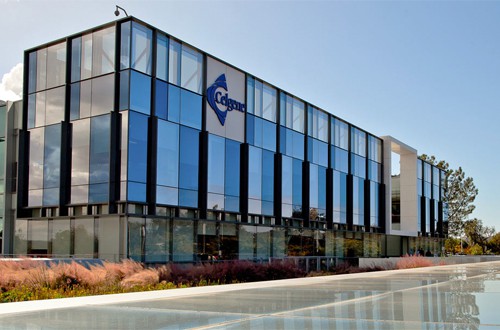
Celgene has made another bolt-on acquisition, paying $300m upfront and $475m in milestones for Delinia and its immunology and inflammation programmes.
The scale of the deal is eye-opening given that Delinia’s lead candidate is still in preclinical development and the company itself – led by Atlas Ventures’ Saurabh Saha – only came into being a few months ago.
Celgene has made no secret of its intention to expand its pipeline beyond its main focus on cancer drugs, and the Delinia deal gives it a candidate, called DEL106, that acts as an interleukin-2 (IL-2) mutein Fc fusion protein and is designed to up-regulate regulatory T cell function.
The drug has potential in a variety of autoimmune diseases such as systemic lupus erythematosus and rheumatoid arthritis, says Celgene, which also claims rights to related second-generation candidates. DEL106 is due to start clinical trials in 2018.
Celgene’s first foray into the immunology and inflammation sector came with psoriasis blockbuster Otezla (apremilast), and it has a string of other pipeline candidates in this therapeutic category including mongersen for inflammatory bowel disease and ozanimod for multiple sclerosis which are both in late-stage testing.
Otezla continued its fast growth trajectory with sales of $305m in the fourth quarter, up 67%, which helped the US biotech post a 17% increase in product sales to $2.98bn. Star oncology drug Revlimid (lenalidomide) for blood cancer grew 16% to $1.81bn in the quarter, with follow-up Pomalyst/Innovid (pomalidomide) up 29% to $378m.
The Delinia acquisition comes in the wake of other bolt-on deals most recently its takeover earlier this month of another immunology specialist – Anokion – and its December purchase of oncology, neurodegeneration and autoimmune disease firm Acetylon and a $295m discovery alliance with Evotec for stem cell therapies.
It’s still adding to its cancer stable too, with recent examples including its $600m deal for Swiss biotech EngMab – signed last October – the acquisition of marizomib from Triphase Accelerator for $43.5m and a $2.5bn licensing deal with Jounce for five immuno-oncology candidates.
“2016 was an outstanding year of progress strengthening our commercial portfolio and advancing our early-, mid- and late-stage pipeline,” said Mark Alles, Celgene’s chief executive.
“We expect our business momentum and significant near-term catalysts to drive high-growth through 2017 and beyond.”




